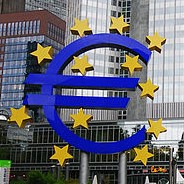In the not-too-distant future, should a continent-spanning republic ever emerge in Europe, historians will probably point to Sept. 12, 2012, as one of the game-changing days in the historic march toward such a goal: The German Constitutional Court effectively accepted the European Stability Mechanism (ESM); the European Commission made public its far-reaching plans for a European banking union; European Commission President José Mario Barroso declared that “the EU must strive to become a federation of nations states” in his State of the Union speech before the European Parliament; and finally, Dutch voters strengthened the country’s pro-European center, while paring back the Europhobic and populist party of Geert Wilders, thus re-establishing the Netherlands as a country committed to European integration.
The eventful day came less than a week after European Central Bank chief Mario Draghi had demonstrated his commitment to saving the countries of Southern Europe from their crushing debt burdens by announcing unlimited bond purchases through the ECB, creating euphoria on financial markets. Draghi’s move was largely condemned by German public opinion. But in a contrast to similar, more-limited commitments by the ECB in the past, Draghi was not immediately condemned by the full spectrum of the German political class for sacrificing the bank’s governing principle of price stability and engaging into monetarization of state debt. Indeed, some German politicians, most prominently German Finance Minister Wolfgang Schäuble, clearly voiced support for the announcement.
Altogether, this was a lot: decisive economic action at the ECB; a psychological shift in one of the founding countries of the EU, the Netherlands; profound, honest and deep intellectual reflection on the future of European democracy across the spectrum of EU institutions; and finally a lift of the legal barriers for more euro-integration in one of the union’s two tipping-point countries, Germany.

